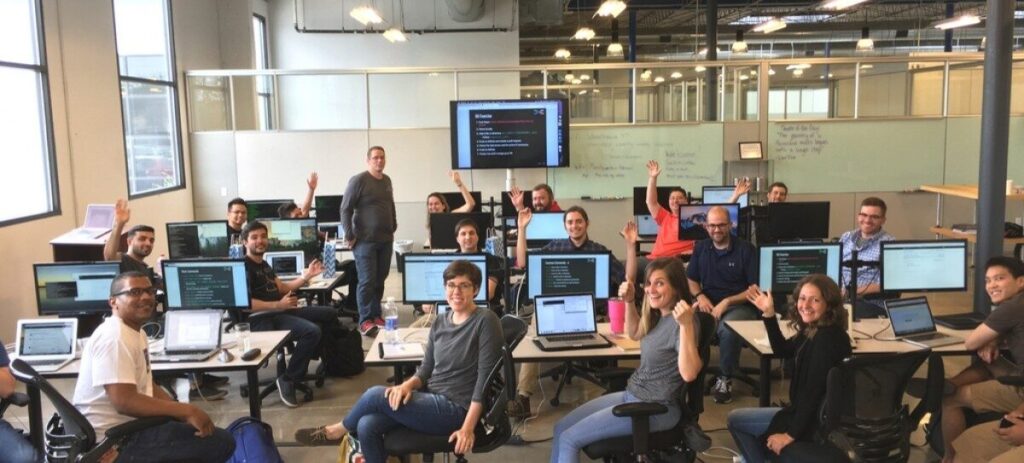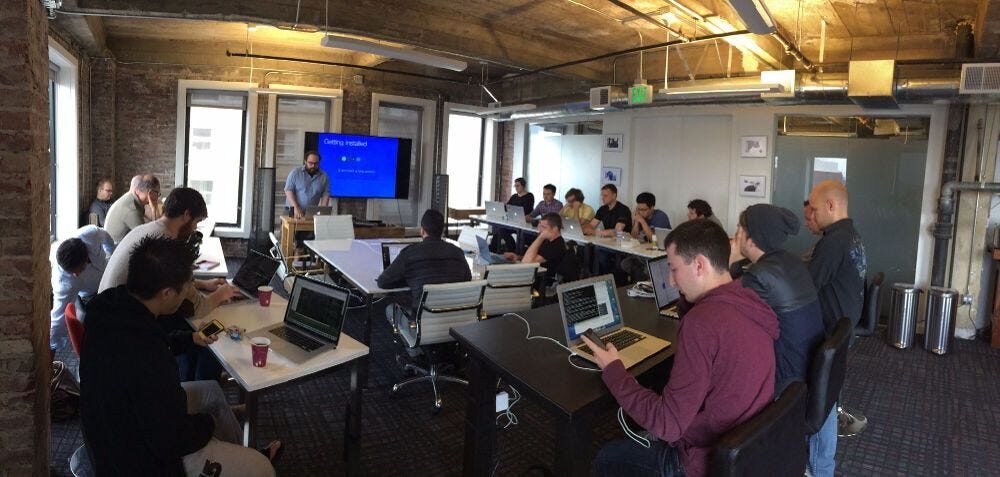
In today’s rapidly evolving tech landscape, traditional education paths are no longer the only route to a successful career in software development. One of the most significant disruptions in the field of technology education has been the rise of coding bootcamps. These intensive, fast-paced programs have gained popularity for their ability to transform beginners into job-ready developers in a matter of months. With tech companies facing a talent shortage, bootcamps are offering a solution by delivering IT training that’s focused, efficient, and geared towards real-world skills.
In this article, we’ll dive into how coding bootcamps are changing lives, providing people from all backgrounds the opportunity to learn to code and transition into high-paying tech roles. Whether you’re a complete beginner or someone looking to pivot into the world of software development, a coding bootcamp could be the key to unlocking your future in tech.

What Are Coding Bootcamps?
Coding bootcamps are short-term, immersive programs that typically last between 12 to 24 weeks. Unlike traditional university programs that can take years, these bootcamps focus on the core skills needed for specific roles in the tech industry. The goal is to equip students with hands-on experience and technical proficiency in areas like web development, software engineering, and data science training.
One of the main appeals of bootcamps is their focus on practical skills. While university courses may emphasize theory, bootcamps prioritize the tools and techniques that employers are looking for right now. From coding tutorials and live projects to collaborative coding challenges, these programs are designed to simulate real-world work environments.
Why Are Coding Bootcamps So Effective?
Coding bootcamps have been proven to be effective in providing high-quality tech skills training in a short period of time. Here’s why they work:
- Immersive Learning Experience: Unlike traditional classroom settings, bootcamps immerse students in a practical, project-based environment. Participants often spend 8-10 hours a day coding, collaborating on software development projects, and completing coding exercises that simulate real-world scenarios.
- Career-Focused Curriculum: The curriculum of a coding bootcamp is typically tailored to the current demands of the job market. Whether it’s front-end development, back-end development, or full-stack development, students receive targeted training on in-demand skills. Bootcamps often partner with tech companies to ensure that their programs are aligned with industry standards, making graduates more attractive to employers.
- Hands-on Learning: A major advantage of bootcamps is the hands-on approach to learning. Participants work on coding projects throughout the course, building portfolios that they can present to potential employers. From day one, students are writing code, debugging, and working in teams on larger projects, which prepares them for the realities of working in tech.
- Mentorship and Support: Bootcamps often provide one-on-one mentorship from experienced developers, which can be a game-changer for beginners. The personalized attention helps students overcome obstacles quickly and accelerates their learning process. Additionally, many programs offer career services like resume reviews, mock interviews, and networking opportunities with recruiters.
- Flexibility: Many bootcamps offer full-time, part-time, and even online options, making it easier for people to fit learning into their schedules. For example, if you’re working a full-time job but want to learn to code, there are part-time or online IT courses that can help you build your skills without requiring a complete career break.
Who Are Coding Bootcamps For?
While coding bootcamps are accessible to beginners, they are also valuable for individuals looking to upskill or switch careers. Some bootcamp participants are looking to transition from non-tech roles, while others may have prior experience and are looking to specialize in areas like cybersecurity training or data science training.
Here are a few groups that might benefit from attending a coding bootcamp:
- Complete Beginners: Many bootcamp programs are designed for those with little to no experience in coding. These courses typically start with the basics and provide programming for beginners, covering essential languages like HTML, CSS, and JavaScript.
- Career Changers: Coding bootcamps are popular among professionals from non-technical fields who want to pivot into tech. With their fast-paced format, bootcamps offer a direct route to high-paying roles in software engineering or web development.
- Professionals Looking to Upskill: For those already working in tech, bootcamps can offer specialized training in areas like advanced coding or IT certifications. This allows professionals to stay competitive and gain expertise in emerging fields like machine learning or cloud computing.
- Recent Graduates: College graduates who may have studied a different discipline but are interested in tech can use bootcamps as a way to gain job-ready skills. The hands-on approach offered by bootcamps can often be more effective than theoretical college courses for securing employment.
The Path from Bootcamp to Employment
One of the most appealing aspects of coding bootcamps is their focus on career outcomes. The goal of these programs is not just to teach coding skills, but to help students land jobs. Many bootcamps boast impressive job placement rates, with graduates landing roles as software developers, data analysts, and IT specialists.
After completing a bootcamp, graduates typically possess the following skills:
- Software development: From building websites to developing mobile apps, bootcamp graduates can demonstrate their proficiency in software engineering through portfolios filled with completed projects.
- Problem-solving and algorithms: Bootcamps train students to think like developers, solving complex problems through logical reasoning and learning key algorithms.
- Team collaboration: Since most bootcamps simulate real-world projects, graduates have experience working in teams, using collaboration tools like GitHub, Slack, and Trello.
- IT certifications: Some coding bootcamps offer paths to IT certifications, which can further boost employability. These certifications may cover fields like cloud computing, cybersecurity training, and data science.
Is a Coding Bootcamp Right for You?
While coding bootcamps offer many advantages, they are not without challenges. The intensive nature of these programs can be overwhelming, especially for those with little coding experience. It’s important to be ready for the time commitment and the learning curve that comes with jumping into programming courses.
However, for those willing to put in the work, the payoff can be significant. With tech skills training in high demand, graduates of bootcamps often see salary increases and rapid career progression. For example, many bootcamp graduates report receiving offers within months of completing their programs, and some are even able to double their previous salaries.

In an age where technology drives nearly every industry, the demand for skilled software developers is at an all-time high. Coding bootcamps offer a fast track to entering this lucrative field, providing accessible IT training that can transform anyone from a beginner to a fully-fledged developer.
Whether you’re starting from scratch or looking to build on your existing skills, bootcamps offer a practical and efficient way to learn to code, secure IT certifications, and start building a career in tech. For many, coding bootcamps have become a life-changing opportunity, helping individuals from diverse backgrounds transition into high-paying, future-proof roles in software development and beyond.



